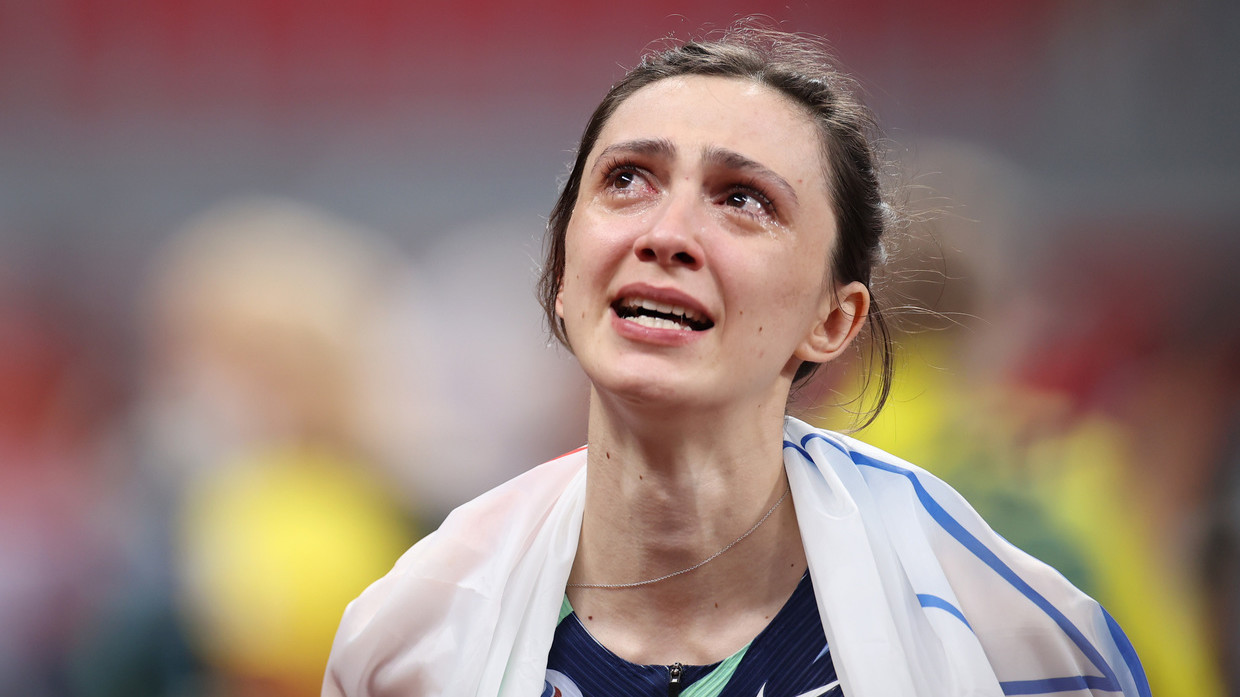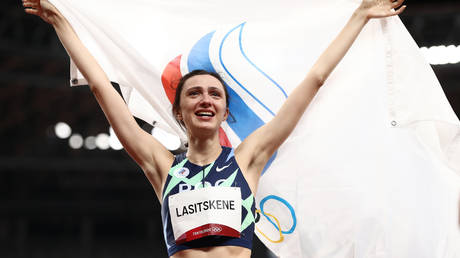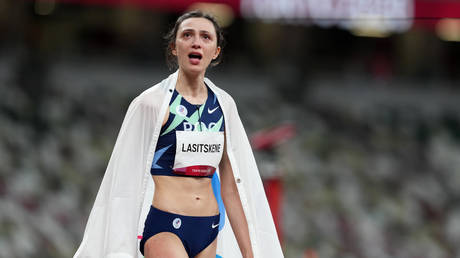Tokyo 2020 Olympic gold medalist Mariya Lasitskene has said that her angry open letter about the bans placed on her country hasn't received a response from International Olympic Committee (IOC) president Thomas Bach.
The three-time high jump world champion launched a scathing attack on Bach last week and accused him of hypocrisy while ignoring the interests of Russian athletes such as herself who are barred from international events.
This is due to sporting federations acting on a recommendation made by the IOC in February to sanction Russian and Belarusian athletes due to the military operation in Ukraine.
Speaking to Russian reporters on Monday, Lasitskene stated that there had been no reply to her open letter but she also "had no doubt that there would not be one."
"The letter was written so as not to forget about the athletes who are in Russia, so as not to shift the responsibility to sports. [For them] to be remembered. This topic is very difficult for me," she added when asked for the motivation behind penning the correspondence.
Then reminded that there was, nevertheless, a reaction to her letter in the comments section of her posts on social media, the 29-year-old claimed to have "immediately disconnected" from everything after the publication of the letter on Instagram.
"I didn't read anything, but I expected the reaction to be like this," she confessed.
Since the IOC's recommendation to ban Russian athletes from international sports in late February, its president, Bach, has attempted to justify the organization's stance by claiming that such sanctions target the Russian leadership, which he accuses of breaching the Olympic Truce.
Bach has also claimed that Russian athletes have partly been barred for their own safety.
In her open letter, however, Lasitskene questioned that attitude and noted that current developments and Russia's prior doping scandal have restricted her from being able to participate in events through no fault of her own.
"Over the last seven years I have not been able to compete in international competitions for about four years in total," she highlighted, stressing that she remembered "very well" how Bach turned a "blind eye" to the fact that IOC member Sebastian Coe didn't allow her to perform at the 2016 Olympics in Rio "simply because" she was born in Russia.
Lasitskene further accused Bach of not caring about the fate of the athletes by demanding that they speak openly about Russia's activities, and instead choosing the easiest option to ban them because of their nationality.
Providing the example of Russian tennis players being able to compete in international competitions where they have not received threats to their safety, she doubted that Bach has the "courage and dignity" to lift the sanctions.
Lasitskene arrived at this conclusion because such an act would force supposedly Bach into admitting he violated the IOC's Charter.
The IOC isn't the only body to have felt her wrath as Lasitskene has also clashed with the Russian Athletics Federation (RUSAF), accusing them of not doing enough to resolve the plight of their athletes affected by the suspensions.



